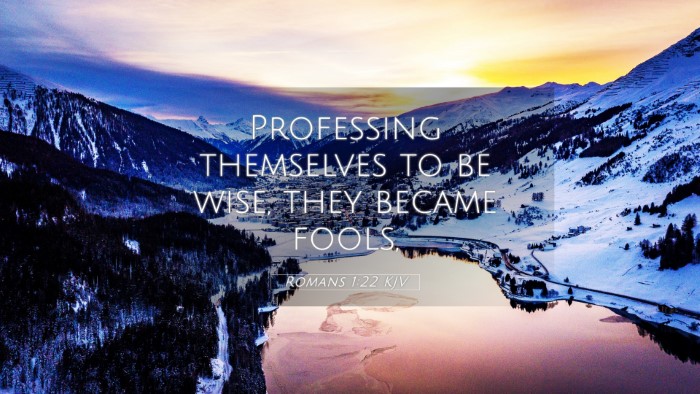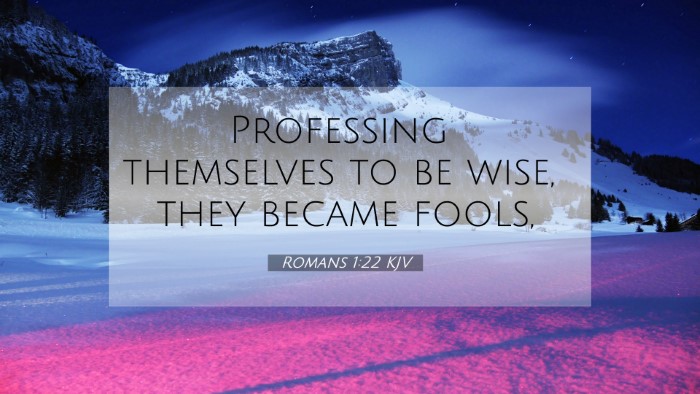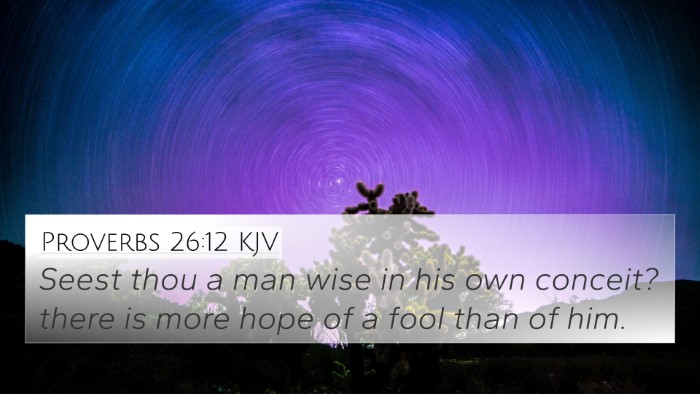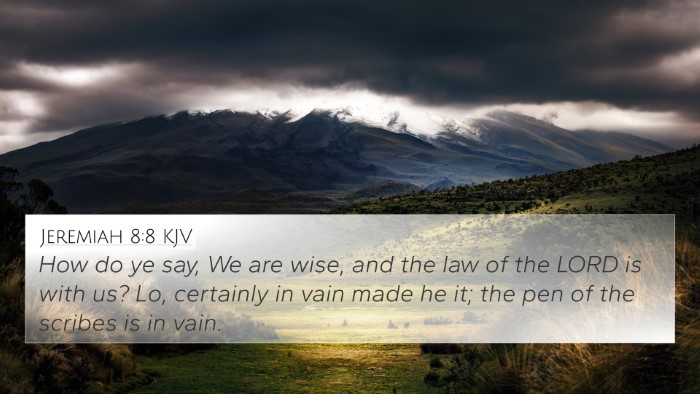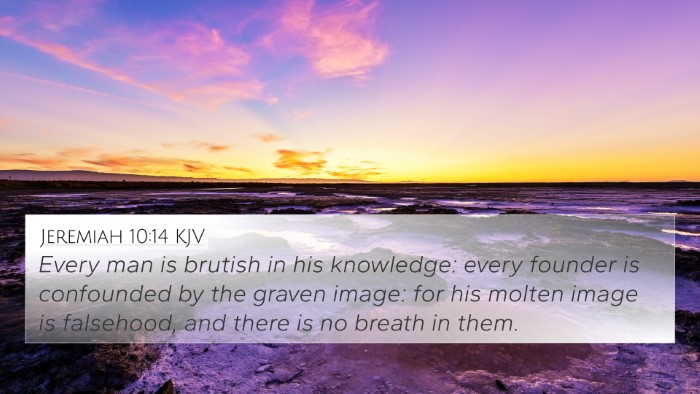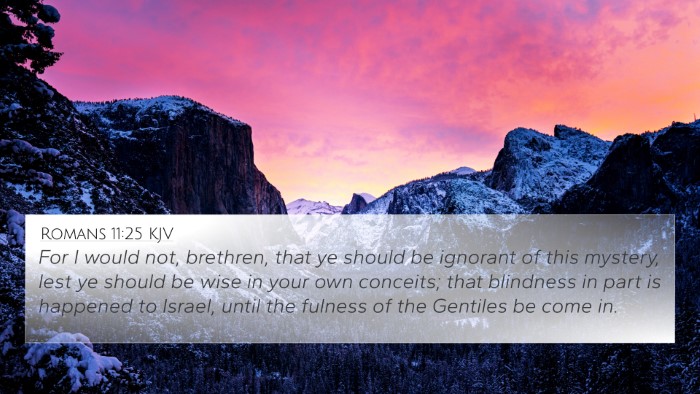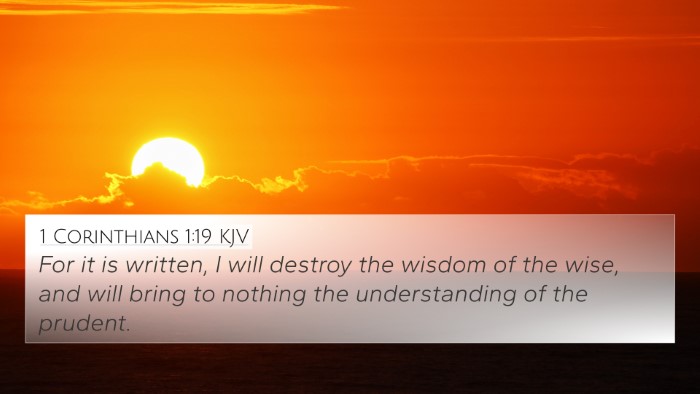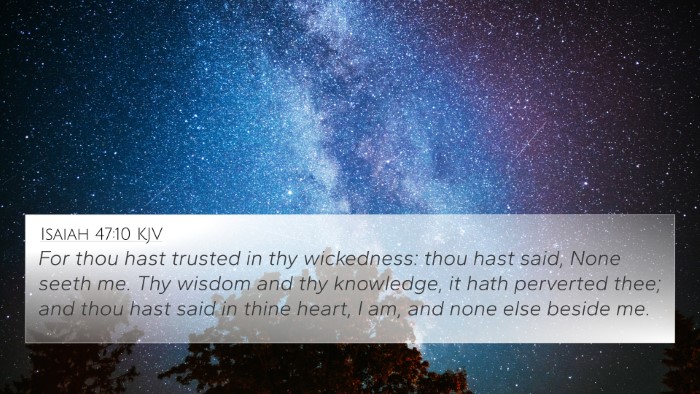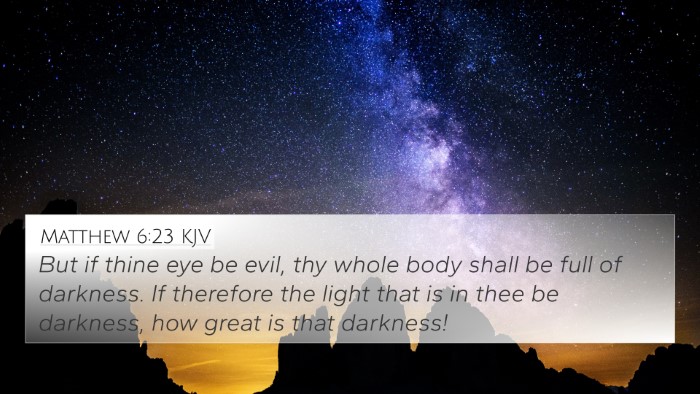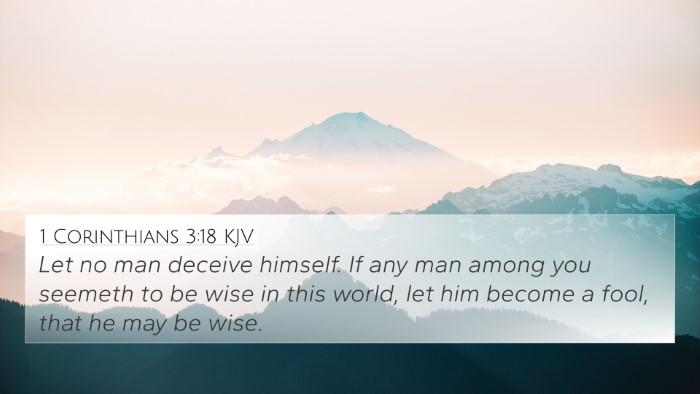Understanding Romans 1:22
Verse: "Professing themselves to be wise, they became fools."
This verse highlights a significant transformation in human understanding, where self-proclaimed wisdom leads to folly. It reflects the consequences of rejecting divine truth and opting for human reasoning over God's guidance.
Insights from Public Domain Commentaries
Below is a synthesis of insights from renowned commentaries:
-
Matthew Henry:
Henry emphasizes the irony of self-proclamation in wisdom. He explains that those who abandon the fundamental truth of God often become misguided, thinking they possess knowledge when, in reality, they lack discernment. Their folly is manifested in their rejection of God's ways.
-
Albert Barnes:
Barnes elaborates on the nature of human wisdom excluding God. He notes that this verse serves as a stark warning against intellectual pride. The phrase "became fools" conveys a complete inversion of understanding, where wisdom leads not to enlightenment but to moral and spiritual blindness.
-
Adam Clarke:
Clarke interprets the failure to recognize divine wisdom as a grave error. He discusses how those who think themselves wise often reject revelation and thereby fall into ignorance. This leads to devastating consequences, as they become incapable of grasping Truth.
Connections Between Bible Verses
Romans 1:22 connects with several significant passages that enhance understanding of its message:
- Proverbs 26:12: "Seest thou a man wise in his own conceit? there is more hope of a fool than of him."
This suggests the danger of pride in one's wisdom.
- 1 Corinthians 3:18-19: "Let no man deceive himself. If any man among you seemeth to be wise in this world, let him become a fool, that he may be wise."
Here, Paul illustrates the contrast between worldly wisdom and true wisdom from God.
- Job 12:13: "With God is wisdom and strength, he hath counsel and understanding."
This verse reinforces the source of genuine wisdom.
- James 3:13-15: "Who is a wise man and endued with knowledge among you? let him shew out of a good conversation his works with meekness of wisdom. But if ye have bitter envying and strife in your hearts, glory not, and lie not against the truth."
This underscores that true wisdom is meek and rooted in good deeds.
- 1 Timothy 6:20: "O Timothy, keep that which is committed to thy trust, avoiding profane and vain babblings, and oppositions of science falsely so called."
This warns against unsubstantiated knowledge that distracts from truth.
- Romans 1:25: "Who changed the truth of God into a lie, and worshipped and served the creature more than the Creator."
This directly follows Romans 1:22, elaborating on the folly of idolatry featured in human wisdom.
- Colossians 2:8: "Beware lest any man spoil you through philosophy and vain deceit, after the tradition of men, after the rudiments of the world, and not after Christ."
This emphasizes caution against intellectualism that sidesteps Christ.
Thematic Connections and Analysis
This section explores the thematic connections between biblical texts that emphasize the danger of secular wisdom:
- Worldly Wisdom vs Divine Wisdom:
Throughout scripture, the tension between human wisdom and divine revelation is a recurring theme. Romans 1:22 serves as a reminder to focus on God’s guidance rather than human intellect.
- Pride and Humility:
This verse encapsulates the idea that pride leads to spiritual blindness. Proverbs 11:2 states, "When pride cometh, then cometh shame: but with the lowly is wisdom."
- Folly of Idolatry:
Romans 1 critiques the folly of idolatry, correlating with the emphasis found in Psalm 115:8: "They that make them are like unto them; so is every one that trusteth in them."
Studying Cross-References Effectively
For those looking to deepen their understanding through comparative analysis, here are some tools and methods:
- Bible Concordance: Utilize concordances to find related verses and themes throughout scripture.
- Bible Cross-Reference Guide: Employ cross-reference guides to locate passages that support or contrast each other.
- Cross-Referencing Bible Study Methods: Engage in methods that highlight thematic connections between verses for a richer understanding.
- Bible chain references: Create chains of related verses that can build upon one another thematically.
- Interpreting Biblical Themes: Use cross-references to interpret overarching themes across both Old and New Testament texts.
Conclusion
Romans 1:22 serves as a powerful reminder of the pitfalls of relying on human wisdom over divine truth. By exploring connections with other scriptures and employing effective cross-referencing tools, believers can deepen their understanding of God’s Word.

